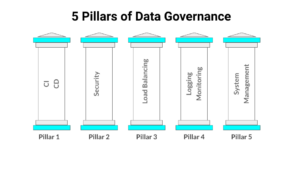The freelance economy in the United States is massive and growing rapidly, with recent estimates expecting the freelance industry to make up 50.9% of the total workforce by 2027. And, in the IT world, in particular, the freelancing skills and the economy may create the symbiotic relationship necessary to fill in the tech skills gaps.
The benefits have become clear to employers, as 75% of hiring managers prefer to engage independent freelancers, according to an Upwork survey. For those on the opposite side of the spectrum thinking of going solo as a freelancer in the IT industry, here are a few of the potential benefits to consider.
- More earnings potential. While freelancing is not a lucrative business for all industries, those with in-demand skills can earn more hourly than 70% of workers, and 44% of freelancerstold Upwork they earn more freelancing than with a traditional job.
- Better work-life balance: Because IT freelance jobs can sometimes be performed remotely, employees might find they have greater flexibility. Freelance jobs can also be done on off-hours, meaning workers can forgo the 9-to-5 schedule and have the freedom to choose from projects.
- Freedom from work politics. Freelancers are generally required to meet deadlines and goals rather than become part of the day-to-day office life.
- Freelance creates more opportunities for parents with kids. The rising cost of living necessitates that you have additional income sources. If you’re a parent and you can’t take a full-time job due to domestic responsibilities, freelancing may be the answer.
- Higher life satisfaction: As a freelancer, you have the opportunity to choose services that are of interest to you and maintain focus on your professional skills. A 2020 survey from Payoneer revealed that four out of five feel more satisfied freelancing than in a traditional office role.
How To Get Started With Freelancing In IT
In the IT sector, the talent shortage has given people with in-demand skills—such as machine learning, user experience (UX) design, web and software development and virtual reality—more leverage in setting their terms for work. Because of this, those who have mastered these hard-to-find skills should consider freelancing if the benefits above sound promising.
That said, freelancing can also sometimes be unstable. To deal with this instability and other challenges related to freelancing, consider these best practices to build some certainty into your career.
- Evaluate freelance marketplaces to choose the best for yourself.
- Create a strong portfolio to highlight your expertise.
- Build an income stream to cushion you against feast-or-famine cycles.
- Create your strong personal brand to be competitive.
Once you’re determined to be a freelancer, do your market research. With a clear understanding of your competition and your potential clients, you can focus on rare and unique skills. Because as employers realize the need for these skills with the recent hiring struggles and resignation challenges, IT workers have seen their personal lives and earnings improve with increased freelancing options.




I heard rs99com has a pretty good selection of card games. If you’re into poker or blackjack, might be worth checking out to see what they’ve got! Find it right here: rs99com
Bet365br1, a casa que a gente já conhece e confia. Sempre com as melhores opções de apostas e um site fácil de navegar. Bora fazer um green! Confere lá: bet365br1
Thanks for sharing. I read many of your blog posts, cool, your blog is very good.
Always on the lookout for good deals and kkkjilipromocode comes through! Getting those extra perks makes it even better to play. Check regularly for some cool promos kkkjilipromocode.
Thanks for sharing. I read many of your blog posts, cool, your blog is very good.
Can you be more specific about the content of your article? After reading it, I still have some doubts. Hope you can help me.
Thank you for your sharing. I am worried that I lack creative ideas. It is your article that makes me full of hope. Thank you. But, I have a question, can you help me?
I don’t think the title of your article matches the content lol. Just kidding, mainly because I had some doubts after reading the article.
Your article helped me a lot, is there any more related content? Thanks!
Your point of view caught my eye and was very interesting. Thanks. I have a question for you.
Your article helped me a lot, is there any more related content? Thanks!
Thanks for sharing. I read many of your blog posts, cool, your blog is very good.